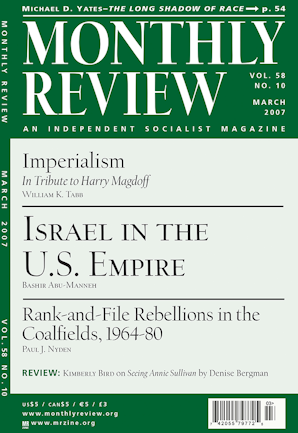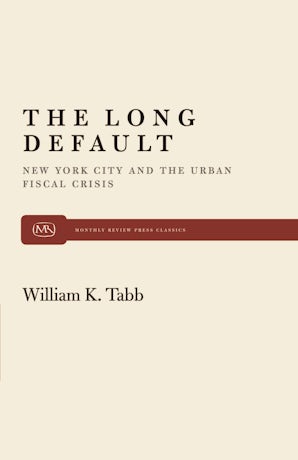Also in this issue
Books by William K. Tabb
The Amoral Elephant
by William K. Tabb
Future of Socialism
by William K. Tabb
Churches in Struggle
Edited by William K. Tabb
The Long Default
by William K. Tabb
Article by William K. Tabb
- The Present in History, 2021
- The Criminality of Wall Street
- The Crisis: A View from Occupied America
- Four Crises of the Contemporary World Capitalist System
- Wage Stagnation, Growing Insecurity, and the Future of the U.S. Working Class
- Resource Wars
- 'Let the Dialectic Continue!'
- The Power of the Rich
- Trouble, Trouble, Debt, and Bubble



